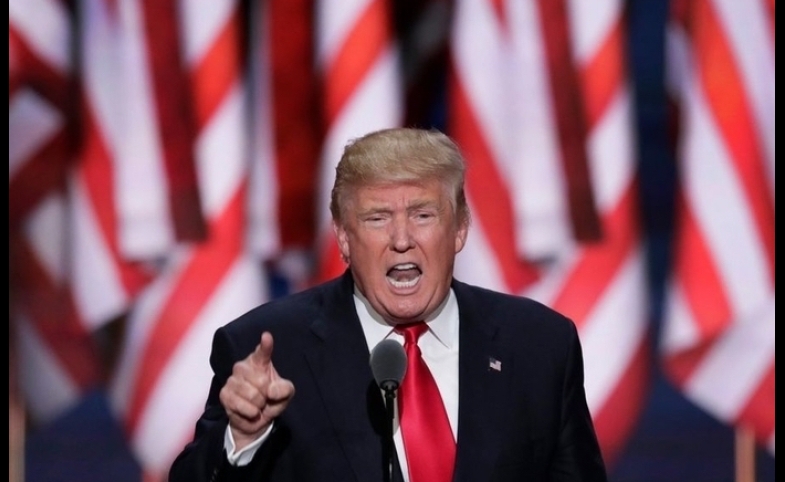Russian disinformation campaigns are a hot topic these days, but fake news emanating from Moscow is hardly a new phenomenon for U.S. public diplomacy. However, the same phenomena that have allowed the Russian infowar to...
KEEP READINGThe CPD Blog is intended to stimulate dialog among scholars and practitioners from around the world in the public diplomacy sphere. The opinions represented here are the authors' own and do not necessarily reflect CPD's views. For blogger guidelines, click here.

The Great Communicator
About two weeks ago, on the same day that his new special envoy to Ukraine told Ukrainians that the U.S. might provide them with more military support, the President of the United States, in Washington, tweeted his outrage at “Ukrainian efforts to sabotage” his election campaign last year.
Given the political chaos in Washington D.C. these days, this astounding contrast did not draw much attention. What kind of foreign policy promises a country support and then undermines it in short order?
Yet subsequent events only underline the disconnect between the Trump Administration and much of the Washington foreign policy community regarding Russia and Ukraine.
Last week, for example, the President finally signed the sanctions bill that Congress had passed by overwhelming, bipartisan margins. But Trump was not happy with the legislation, he wrote in a statement, because it limited his ability to act in foreign affairs. He did not specifically mention Russia’s interference in the 2016 U.S. presidential election. Nothing specific about Russia’s takeover of Crimea or aggression in Eastern Ukraine. He signed the bill “for the sake of national unity,” he said. The bill “represents the will of the American people to see Russia take steps to improve relations with the United States. We hope there will be cooperation between our two countries on major global issues so that these sanctions will no longer be necessary.” The White House statement only confused the issue because it didn’t state what actions Russia needed to take. The only certainty is that, with the Russian response, there will be several hundred fewer employees at the U.S. Embassy.
Trump and his Twitter team are applying a favorite Kremlin communications technique: without admitting guilt, they suggest that everyone commits the alleged offense.
Then last Thursday, Politico reported that Secretary of State Rex Tillerson is delaying implementation of the State Department’s effort to counter Russian propaganda — approved by Congress last December — right after Vice President Pence returned from a visit to Eastern Europe where he pledged support for efforts to resist Russian aggression.
So what is U.S. policy toward Russia and the countries on Russia’s European perimeter?
We know only that Trump’s long history of questionable — if not nefarious — dealings with Russian money men has conditioned his policy toward Putin. (The New Republic has an excellent run-down of this disturbing backdrop.)
When Congress and the State Department push back against Moscow, the Trump Administration does all it can to discredit the allegations against Russia — most recently, by working behind the scenes to promote a fictional story that the murder of a DNC staffer was part of a Democratic Party cover-up regarding the leak of Hillary Clinton’s emails last year.
By inventing such stories and by dredging up a report from last January in Politico on Ukrainian “sabotage,” Trump and his Twitter team are applying a favorite Kremlin communications technique: without admitting guilt, they suggest that everyone commits the alleged offense. “Why go after me and not Hillary?” Trump seems to be saying. Sure, the Russians “probably” meddled, but others do as well. The Kremlin may break the rules, but as Trump would tweet, “are we so innocent?”
Under this communications strategy, the Russian meddling in the 2016 U.S. election is “fake news” peddled by the “failing” New York Times and the “Amazon” Washington Post, not a verified report by the U.S. intelligence community.
This technique is essentially intended to demobilize opposition, but is having the opposite effect.
By insisting on a pro-Kremlin agenda, and trying in vain to halt all inquiries into the Russian meddling in the election that brought him to power, Trump undermines his own political position, inviting further investigation of his financial dealings and opening the possibility of charges of obstruction of justice.
Not a good time for policy, or those trying to communicate it.
Photo by Voice of America I Public Domain
Visit CPD's Online Library
Explore CPD's vast online database featuring the latest books, articles, speeches and information on international organizations dedicated to public diplomacy.
POPULAR ARTICLES
-
January 29
-
January 20
-
January 28
-
January 2
-
January 8
Join the Conversation
Interested in contributing to the CPD Blog? We welcome your posts. Read our guidelines and find out how you can submit blogs and photo essays >.













